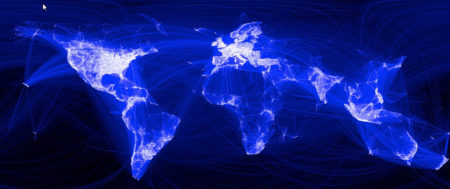
This article was originally published by the Political Violence at a Glance on 16 September 2016.
Last night, for the eleventh night in a row, Internet access was shut down in Gabon. Starting again at 7pm, network accessibility almost came to a halt. These “Internet curfews” come in the aftermath of highly contested and controversial national elections. Just over a week ago, Gabon’s incumbent president, Ali Bongo, declared himself winner of the elections by a narrow margin with 49.8 percent of all votes. His opponent, Jean Ping, who allegedly lost with 48.2 percent of votes has demanded a recount, and the international community has backed him up. Amidst the uncertainty surrounding the election results, protesters took to the streets and set fire to a parliamentary house, while the opposition reported attacks against their premises by incumbent forces. Throughout the post-election tensions, the government has resorted to extreme digital censorship. Prior to the nightly Internet curfews, connections were cut for more than five days across the country while protesters took to the streets across Libreville, and according to Reuters, thousands were arrested under the charges of rioting.
